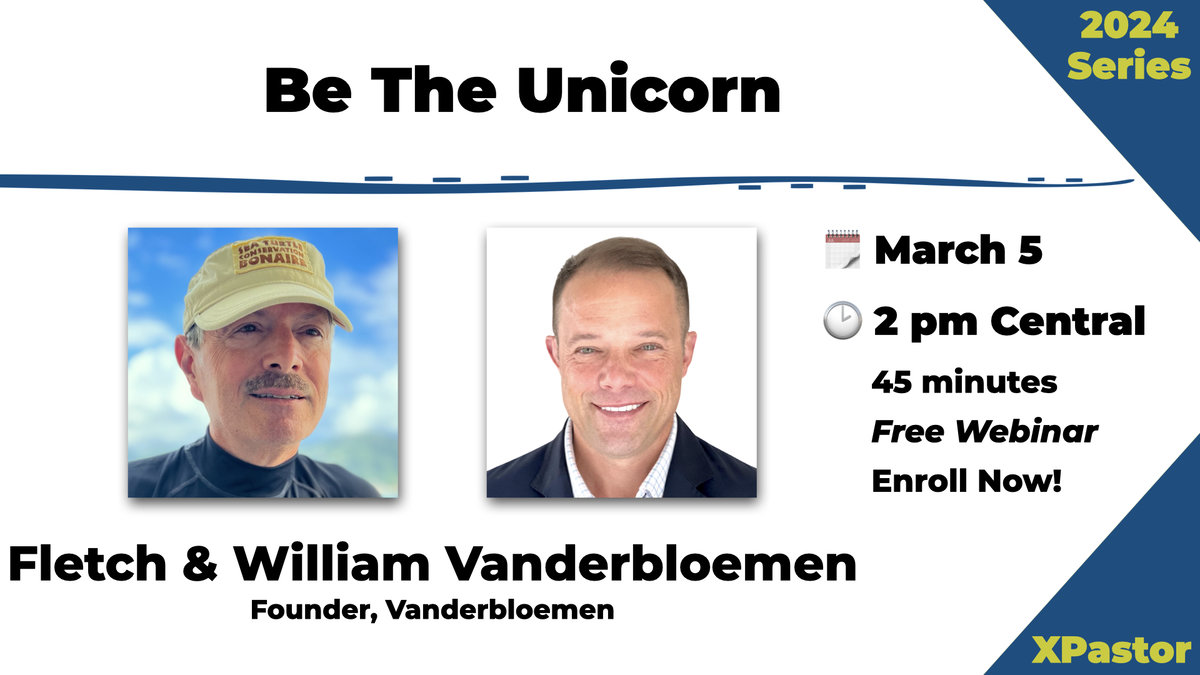Moving from the rural Midwest to Southern California changes your definition of “normal.” When the move includes connecting with a church that’s twice the size of the town you moved from, the redefinition demands a quantum paradigm shift. If you’re able to adjust to the fact that everything around you has changed, you might, against all odds, thrive.
The irony in my move from small-town Wisconsin to a high-profile megachurch in Orange County, California, is that my family and our new church family ended up wrestling with the same dilemma, but from opposite perspectives. For me and my family, normal changed immediately and we couldn’t ignore it. For our new church, the First Evangelical Free Church of Fullerton, the change was gradual and, therefore, harder to see. The same is true for many established churches, mega or otherwise. Given this ambiguity, a common tendency when the world around them changes is to stick with what always worked.
I wish there were a nicer way to say this, but churches that default to this strategy are making an unintentional choice to become irrelevant. Unable or unwilling to acknowledge this realty, they are consigned to a slow but steady decline, not just in size but in ability and opportunity to demonstrate and declare the gospel.
I speak from experience. I began attending EvFree in its heyday, the 1980s, and served on staff from 1990 to 2003. In my early years, we never gave a thought to church growth. Well before each Sunday-morning service started, the worship center was full and ushers began telling people they’d have to wait until the next service. Not long after Y2K had come and gone, though, attendance was trending slowly but surely downward. Conservatively, the church that gathered on Sundays became a third smaller than it had been.
While we were shrinking, people would observe symptoms of the decline, but concern about irrelevance was not a topic of mainstream conversation. I’ll leave it to others to identify all the reasons why this was the case, but I saw the result of it. Ever so slowly, as we attracted less people, our reputation in the city diminished. Although we had more than a few ministries focused on helping people, many residents and city leaders viewed us as a church that wasn’t overly aware of or interested in meeting real needs. We were simply the big church situated on the north end of Fullerton.
A church that’s sliding toward irrelevance is not unlike a family that can’t see its own dysfunction. It usually takes some outside input to get the issue on the table. For us, this input came after our senior pastor left and we began looking for his replacement. Early in the process, our pastoral search team began interviewing leaders—at seminaries, other churches and denominations—and a quick consensus emerged. The graciously delivered verdict was that we had become irrelevant. A few more forthright observers said that because of our outdated ways of being the church, we’d be hard-pressed to find a qualified candidate who was willing to join us.
Fast forward to today, some eighteen months after Mike Erre defied the consensus and accepted our invitation to step into the senior pastoral role on our staff. No longer on the church staff, I’ve now served three years as an elder. Under Mike’s leadership, we’ve been engaged in the hard work of confronting and overcoming our irrelevance. While we’ve spent massive amounts of time addressing matters of mission, vision and values, much of our work, which actually began before his arrival, has focused on governance and structure. It’s not flashy, but it is foundational. And for a church with a lot of people who invested much in the heyday years, things can get interesting when you start tinkering with the foundation.
When you talk about changing things like bylaws and board structures, long-time members and former leaders share one big concern: That by doing things differently we’ll stray too far from our identity as the church. Walk in the shoes of those who carry this concern and you quickly appreciate that this is no small thing. Which makes the way you address it a big deal.
One of many milestones along the road back to relevance is the way a church thinks about what’s at stake if they’re unsuccessful at making the quantum paradigm shift. A real-life analogy helped our leaders understand what’s at stake.
Churches exist to demonstrate and declare the gospel. Newspapers exist to report the news. During EvFree’s heyday in the 1980s and 90s, newspapers were also thriving. Most adults had one delivered to their homes every day. Today, a majority of people don’t. What happened?
The online Newspaper Death Watch reports that in the last seven years two dozen daily metro papers ceased or announced that they would soon cease publication. And more than one hundred magazines of all kinds have ceased publication in the past two years, including Newsweek, which had appeared on newsstands for eighty years.
Why this demise? The reason newspapers exist didn’t change. People’s interest in receiving the news didn’t change. What changed was the way people want to receive news … from print to digital. Newspapers that didn’t change the way they deliver the news—which remains their reason for existing—lost the opportunity to keep delivering the news.
Irrelevant churches arrive at a similar crossroads. The reason they exist does not change. The Great Commission has not been … cannot be amended. But the way they live out this calling must change if they hope to continue to have the opportunity to fulfill it. One newspaper powerfully illustrates the point.
The Daily Record newspaper serves the small town of Dunn, North Carolina; population 14,000. Over his 55-year tenure as editor, Hoover Adams paid attention to the culture in his city. One thing he noticed was that more people bought his newspapers when, along with the news, he printed the names and pictures of their family, friends and neighbors. As a result, while newspapers around the country are on the decline, The Daily Record’s daily circulation is now more than 15,000. That’s more than one newspaper for every woman, man and child in Dunn.
At EvFree, the implications of this story are setting in. We’re doing the hard, unflashy work of changing the way we do things so that we’ll continue to have the opportunity to be the church in Fullerton and the surrounding cities. It’s painstaking work, and we have a lot more ahead of us, but the early signs are more than encouraging.
When the church that is EvFree gathers this weekend, there will be many more of us than there were eighteen months ago. Twice as many. Better yet, when we leave after each service, we won’t be thinking about next Sunday. We’ll be thinking about how to demonstrate and declare the gospel Monday through Sunday.











